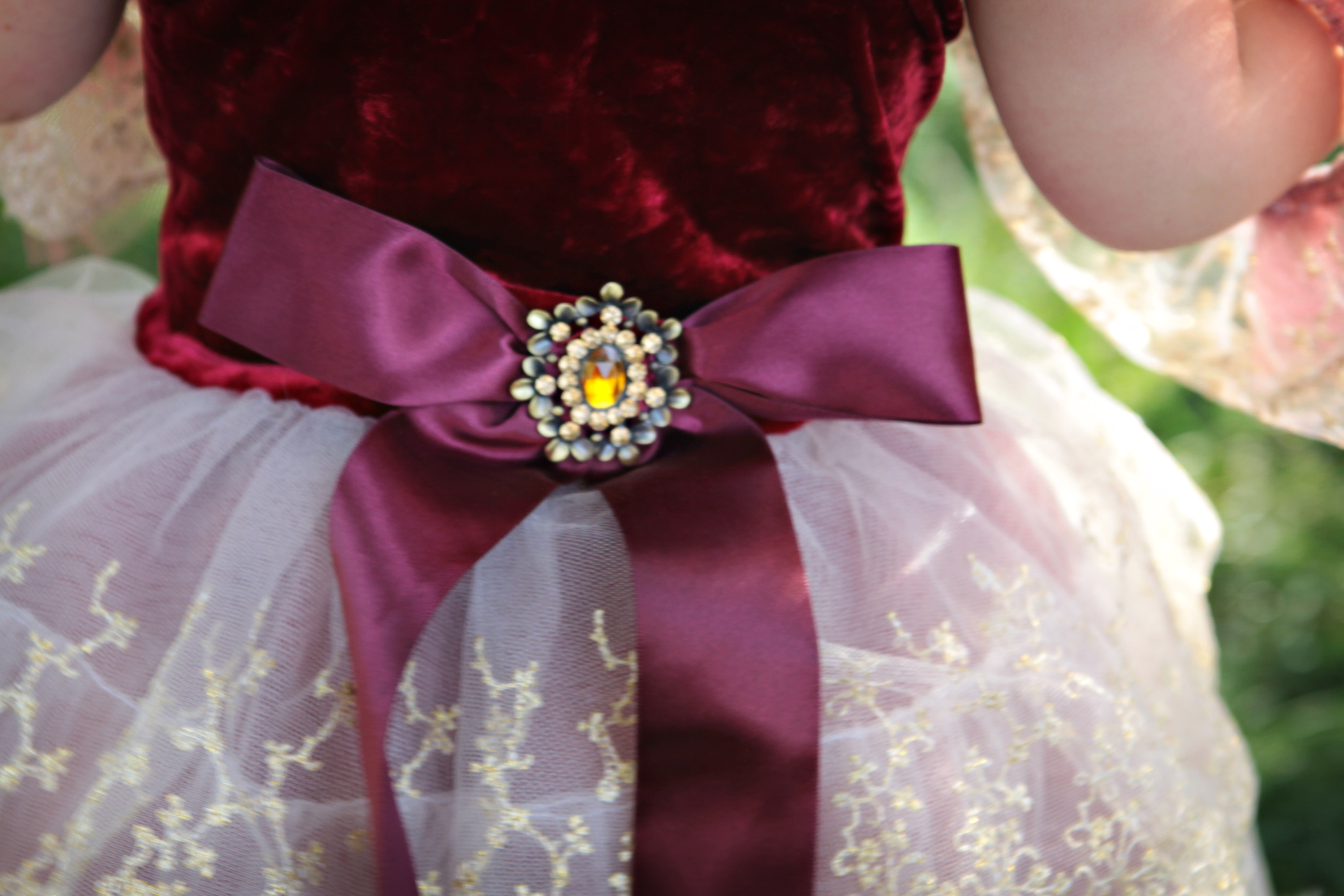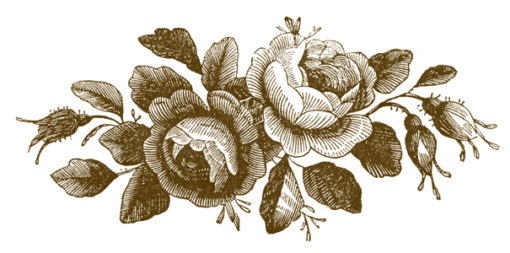On her 18th birthday, Margaret Kelly, who had been called Daisy her entire life, to distinguish her from her mother who was also Margaret Kelly, went down to the Courthouse and legally changed her name to Grace.
She had been planning this event since she was 14 and saw her first Grace Kelly film, To Catch a Thief. She’d watched it because it starred her hero, Cary Grant. But in less than two hours, Grace Kelly eclipsed him. Daisy had always thought “Daisy Kelly” was a silly name, completely unsuited to her. It was a sunny name, vivacious and bright, and Daisy was quiet, contemplative, more like the moon than the sun. As a name, Grace Kelly was far more appropriate, regal and elegant and understated. When she grew up, Daisy decided, she was going to be Grace Kelly.
She watched every Grace Kelly movie she could get her hands on and studied the way she talked and walked and what she wore. She read Grace Kelly biographies. She started taking drama classes and auditioned for each school play. When she wasn’t cast (and sometimes when she was), she worked behind the scenes, mostly in the costume shop, where she learned to sew, and she loved it: she could make her own Grace Kelly-style clothes. Whenever she found herself in a situation and she didn’t know what to do, she asked herself, “What would Grace Kelly do?” and she’d do it…because, after all, she was Grace Kelly…or she soon would be.
On the morning of May 4, 1988, one month before high school graduation, she skipped her first two classes, went down to the courthouse, and changed her name. For 25 years, she never looked back.
She went to college and majored in Fashion and Theatre. She never became one of the flamboyant drama types who populated the college theatre. She didn’t want to be one. She was warm and kind, but she preferred to remain a little apart from the whole thing, present but retaining part of herself for herself alone, quietly keeping most of her thoughts and feelings to herself. She slowly came to see those qualities as strengths she could draw on when she was acting. No one expected her to be able to play such a breadth of roles, or to play them so well. “Still waters run deep,” one of her directors once said. She smiled inwardly whenever she remembered them.
Upon graduation, she stayed in town, working in local theatres, both onstage and in the costume shop. She acted in a few independent movies, too, shot by directors she knew from the theatre scene. A few of her college chums had gone to Hollywood; they emailed Grace, telling her she needed to come down, too. But she had no Hollywood ambitions. When she was still in high school, she’d read somewhere that the original Grace Kelly had said Hollywood was the saddest place she’d ever been. And from what Grace could see it was truer now than it had been when the first Grace Kelly said it. Alcoholism and drug abuse and broken relationships seemed part and parcel of that scene, and she wanted none of it. Her own parents had celebrated their 25th wedding anniversary during Grace’s sophomore year in college; she wanted that sort of stability and the happiness they shared for herself and her own someday children.
She was under no illusions that she’d marry an honest-to-God prince, but she’d been telling herself since she was 14 that she would marry a prince among men. And then, the first time she saw her future husband she didn’t really see him. He was just one in the line of actors she was measuring for their costumes. He probably talked to her. Knowing him, he would have, but she didn’t remember. Her mind was on her work. It wasn’t till later that she even noticed him. And then, only because he was different from the other actors she knew, most of whom, while delightful in many ways, were either wildly insecure or obnoxiously full of themselves. She understood that dichotomy herself; she lived it, but she lived it internally. Grace Kelly was always modulated and discreet. She didn’t let her insecurities show like so many open wounds, nor did she flaunt her abilities. She let them speak for themselves. And if no one noticed, neither would they see that it pained her. And, eventually, it stopped paining her. She received the praise and friendship of colleagues and directors who appreciated that she was a professional, and she learned not to care too much about the rest. And she had no desire to attach herself to anyone who could not do the same.
Ronald could, even though he was very different from her, more outgoing, more easygoing, but never flamboyant or outrageous. He conversed as easily with the directors and leading actors as he did with the stagehands and ushers, and with the same deference, as if he genuinely thought they were his equals, or even his betters, every last one of them. It was this that made Grace first notice him, his genuine amiableness. No one used words like amiable anymore, and it was, she thought, a pity, because it was the perfect word to describe him.
After she’d worked with him on three different shows over the course of a year, she was smitten. But she never let it show. She was Grace Kelly, and she did not wear her heart on her sleeve. When Ronald finally, as he put it later, “worked up the nerve” and asked her out, she smiled a perfectly serene smile and said she’d be pleased to have dinner with him. One dinner led to two, and by the end of the third dinner, Grace was as head over heels in love as any character she had ever played.
After six or seven or ten dinners, when it was clear that Ronald enjoyed her company as much as she enjoyed his, she decided it was time to tell him that Grace Kelly wasn’t the name she’d been given at birth. So she casually mentioned over their next dinner together that she used to be called Daisy.
He raised an eyebrow. “That’s surprising. It hardly suits you.”
She felt mildly triumphant. “Exactly. It never suited me, which is why I changed my name to Grace.”
He smiled. “Grace suits you perfectly.”
And that was all, until shortly after their engagement, after he’d met her brother and sister and her parents, who after ten years still insisted on calling her Daisy. Over coffee at her apartment, he asked, “Why Grace? There are a lot of other names out there, and Grace Kelly was…”
“Already taken?”
“Yes, I guess that’s what I was getting at. Why Grace Kelly?”
She twisted her napkin in her lap. “Because when I was a teenager, I wanted to be her. Daisy Kelly seemed such a silly name. Even now, it seems to belong to a stranger, someone I never was. But I could be Grace Kelly. I don’t look like her, I know, but I act like her. I am like her. Taking her name was the first step toward becoming the person I knew I could be, the person I knew I already was, if only I could be shed of Daisy and the bright twinkliness of that name. I’m not bright and twinkly. I never have been. I never wanted to be. I wanted to be graceful and gracious.” She gave a small smile. “I wanted to be Grace.”
He reached across the sofa and squeezed her hand. “And you are, darling.” For a moment they were both silent and simply looked at each other. Then he said, “I suppose, once we’re married, you’re going to want to call me Rainier.”
She widened her eyes. “May I?”
At his horrified expression, she burst into merry laughter. His horror evaporated into relief, and he tackled her, tickling and kissing her at the same time. After several moments, the tickling subsided and only the kissing remained. And several moments after that, he whispered, “I love you, Grace.” She thought they might be the only words she would ever want to hear.
They married and had children and led the unconventional life of stage actors, sleeping by day and working by night, sheltering their children—two girls and a boy—in the circle of their love and zealously guarding the flame of their love for each other; neither of them wanted it to go out, and they knew, given the difficulty of the life they’d chosen, that keeping that flame alive would require work and sacrifice, and they undertook both with joy, choosing gratefulness that they had each other to love, and work they both loved, and children they both loved.
With so much to love, Grace wondered, how could she ever be unhappy? But she was, sometimes.
“Everyone is, sometimes,” Ronald reminded her.
“Even you?”
He cocked her a grin. “Yes, even I, happy heart that I have, am sometimes unhappy.”
But the unhappy times never lasted long. Work required attention. The children required attention. And attention to something else left little room for unhappiness. It withered, slowly, and suddenly Grace would realize she was content once more.
Days passed and weeks and months and years. The children grew. Her parents aged. And one day Grace got a call from her father. Her mother had been diagnosed with ALS. She drove home that day. Her mother was in better spirits than she expected, well enough, in fact, to hassle Grace about her name. Grace had long since given up trying to convince her parents to stop calling her Daisy. She was reconciled to the reality that they never would, but she did wish her mother would stop dropping hints about how much Grace’s name change bothered her. This day, with ALS hanging over them like an executioner’s axe, Grace asked, as gently as she knew how, “Why does it bother you, Mother?”
Margaret furrowed her brow. “It doesn’t bother me, dear. If you don’t like the name you were given at birth—” she shrugged.
“You say it doesn’t bother you, but it does, else you wouldn’t make needly comments like that.”
Margaret shook her head. “I don’t know what you mean, dear.”
Grace did not push back. She knew it would do no good. Her mother was a lady, in the Southernest sense of the word, even though she hadn’t lived in the South since her wedding. If she said it did not bother her, she wouldn’t admit even on her deathbed that it did. Grace, being Grace, smiled and changed the subject.
As she drove home that evening, the conversation with her mother rose up in her, along with a wish that her mother would understand. It had been nearly 25 years—well over half of Grace’s life—and still her mother did not even try to see it from Grace’s perspective. When Grace thought of all the things she could have changed—her morality, her religion, good grief, even her gender—and hadn’t, she thought her mother very small for continuing to mind her name change. But something about it rankled, clearly, and Grace wanted things to be right between them.
Margaret deteriorated rapidly, more rapidly than anyone expected, so rapidly that Grace had little time to think about how to make things right. She was too busy caring for her mother, comforting her father, protecting her children. Two months after her diagnosis, Margaret was put on hospice. Grace’s brother and sister, their spouses, and their children joined Grace at their parents’ home and held vigil together. Eight days later, Margaret fell asleep and never woke up.
Grace mourned quietly, privately. Ronald alone saw the depth of her grief, her regret. With her father and brother and sister and their families, she was calm and capable and competent as ever, arranging for the funeral, the burial, the obituary, all the little details that grieving people must endure to lay their loved ones to rest. If her voice cracked or her eyes grew teary, it was only to be expected, and only for a moment.
Two months after Margaret’s death, Grace made a trip to the courthouse. Then she made a trip to the cemetery. It was her 43rd birthday. She parked her old Mercedes, put on her coat, for it was chilly, and stepped into the brisk air. Sunlight glinted across the wet grass as she made her way to her mother’s plot. Standing above it, she felt too tall, so she squatted on her haunches. Grace never squatted—it was a most inelegant position—but the grass was too wet to kneel on, and she felt awkward standing almost six feet above her mother’s resting place.
So she squatted.
“Mother,” she said. “I have something to show you.” She rested her handbag on her knees and pulled out her wallet, which she opened. She pulled out a piece of paper the size of a business card. “I wanted you to see this. I wanted to tell you I understand now. You thought I was rejecting you. But it was never Margaret that I minded. It was Daisy. So I put the Margaret back in. I even put it first, because it was the first name I ever had.”
She turned the card over so that it faced her mother’s headstone. “It says, ‘Margaret Grace Kelly’. But I’m not Margaret anymore, Mother. I never was. I’m Grace. I’ve worn that name for so long that it’s become me—or I’ve become it, I’m not sure which. But I wanted you to know that I hadn’t let go of you by becoming me.”
Grace squatted a moment longer, holding the card out so her mother could see. Then she turned it toward herself and read the name silently. She put the card in her wallet and her wallet in her handbag. Then she stood up. She looked down at her mother’s grave, and behind her sunglasses, she blinked away tears. “Good-bye, Mama,” she whispered. Then she turned and walked through the wet grass and the sunlight back to her waiting car.
K. C. Ireton is a multi-published author of both fiction and nonfiction books, including The Circle of Seasons: Meeting God in the Church Year and A Yellow Wood and Other Stories. She and her daughter, Jane, co-host Lantern Hill, a podcast for people who love books, children, and God. Visit kcireton.com to learn more about her work and download the first two chapters of her most recent book. Or visit her on Substack at kcireton.substack.com, where she publishes stories and liturgies.
Leave a Reply
A Field Guide to Cultivating ~ Essentials to Cultivating a Whole Life, Rooted in Christ, and Flourishing in Fellowship
Enjoy our gift to you as our Welcome to Cultivating! Discover the purpose of The Cultivating Project, and how you might find a "What, you too?" experience here with this fellowship of makers!



What a beautiful story. Thank you.
I am so glad you enjoyed it, Mary. I’ve read this story now three times and it seems to get more beautiful each time. K.C. is such a marvelous writer and I am so happy to share her work with Cultivating readers.This piece especially.
Dear Lancia and Mary, thank you both for your kind words. I am so very glad (and grateful!) the story touched you in some way.
Such a beautiful story, Kimberlee! I love the idea of seeing qualities in others, like grace and kindness, and working to emulate those qualities ourselves. In our own strength, we will never fully achieve that which we may desire, however, if we rely on the Holy Spirit we can experience true and lasting transformation. There is power in our names and even more power in HIS name. Thank you for sharing your gift.
Thank you, June! I wrote this story as a bit of a parable, trying to enflesh the idea of “putting on Christ”–how do we become like Him? By doing the things that He did. (Of course, we do those things upheld by grace in the power of the Spirit, but we still have to do them–He won’t do them to us or for us.) I realize it’s a far cry from “putting on Christ” to “being Grace Kelly,” but that was the idea that I was pondering when I wrote the story. I appreciate that you picked up on it! 🙂